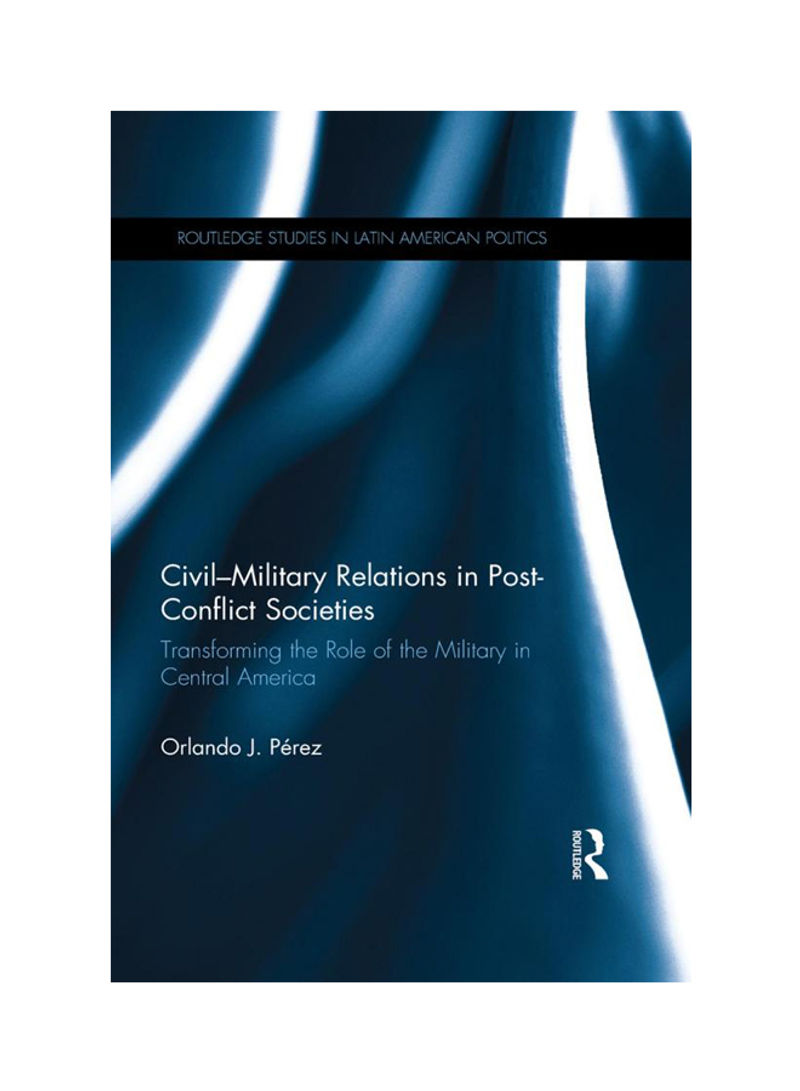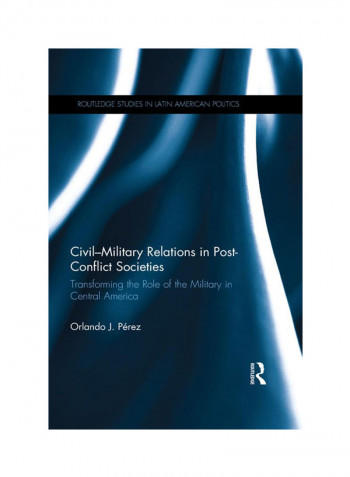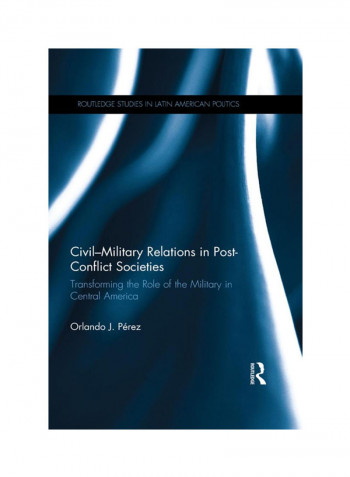Civil-military Relations In Post-conflict Societies Hardcover
Recommend
Sort by
Rating
Date
Specifications
Author 1
Orlando J. Perez
Book Description
Guatemala, El Salvador, Nicaragua, and Honduras are four Spanish speaking countries in Central America that possess uniformed military institutions. These four countries represent different approaches to reforms of civil-military relations, and embody varying degrees of success in both institutional democratization and the managing of security forces. In this book, Orlando J. Perez expertly examines the competing theories of civil-military relations in Central America to advance our understanding of the origins, consequences and persistence of militarism in Latin America.Divided into four parts, Perez begins by proposing a theoretical framework for analyzing civil-military relations, including an analysis of how U.S. foreign and military policy affects the establishment of stable civilian supremacy over the armed forces. Part Two examines the institutional and legal structures under which civil-military relations are carried out revealing in Part Three the reorientation of the missions and roles performed by the armed forces in each country. The concluding part analyzes the role beliefs of members of the military and public opinion about the armed forces in relation to other institutions. Combining both qualitative and quantitative data, Perez bridges the gap between structural and cultural analyses for a more comprehensive understanding of the links between micro and macro level factors that influence civil-military relations and democratic governance.
ISBN-10
415741688
ISBN-13
9.78042E+12
Language
English
Publisher
Taylor & Francis Ltd
Publication Date
5/16/2015
Number of Pages
158
About the Author
Orlando J. Perez is Associate Dean of the School of Humanities and Social Sciences at Millersville University. He is a member of the Scientific Support Group for the Latin American Public Opinion Project (LAPOP) and directs the Americas Barometer survey in Panama and Honduras.
Editorial Review
"The military for decades have played an oversized role on the Central American political stage. Yet, the ending of the Cold War and the resolution of long-standing guerrilla wars have not ended the role of the armies, as they find themselves in a new role of controlling violence linked to narcotraffiking and gangs. In this brilliantly argued and richly detailed volume, we have for the first time an expansive, region-wide reanalysis of the role of the military in this chronically volatile region. Policy-makers, students and citizens alike need to put this volume at the top of their must-read lists." - Mitchell A. Seligson, Vanderbilt University "Perez's book is a cogent and timely contribution to our understanding of the military's prominent role in Central America. His mixed methods approach provides added depth that will be a model for other scholars to follow."- Gregory Weeks, UNC Charlotte



